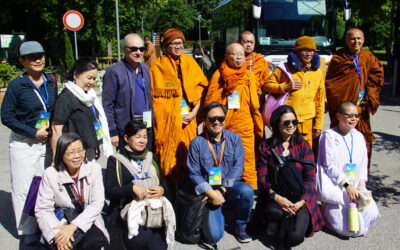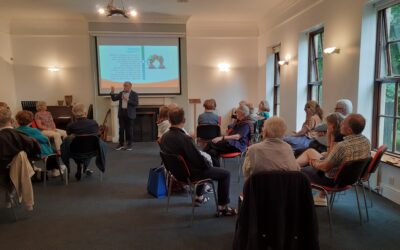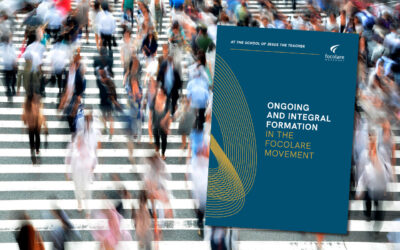 On 31 October German Evangelical Christians and Protestants throughout the world celebrate ‘Reformation Day’. It recalls the beginning of the Luther’s reform when in 1517, according to tradition, he nailed his 95 theses to the door of the castle church in Wittenberg. There will be many liturgical celebrations, Bible readings and concerts to mark the day. In Switzerland, however, the day is celebrated on the first Sunday of November.
On 31 October German Evangelical Christians and Protestants throughout the world celebrate ‘Reformation Day’. It recalls the beginning of the Luther’s reform when in 1517, according to tradition, he nailed his 95 theses to the door of the castle church in Wittenberg. There will be many liturgical celebrations, Bible readings and concerts to mark the day. In Switzerland, however, the day is celebrated on the first Sunday of November.
On 27 October 2002 Chiara Lubich was invited to speak in the Reformed Cathedral of St Pierre in Geneva, the Calvin’s Reformation. She was introduced by Pastor Joël Stroudinsk who at the time was the Moderator of the Reformed Church in Geneva. He said, ‘In a few days Protestantism in its diversity will celebrate the Reformation. Beyond the specific characteristic of Protestantism, it is shared now by other Christian confessions, represented here, this morning in their diversity. The specific characteristic is the passion for the Gospel. It is the will to register the power of a word that transforms the world in its existence and in everyday life, in its many expressions, social, economic, political. This is the challenge that Chiara Lubich … has highlighted. It is with a spirit of gratitude and fellowship that we welcome her this morning to this place.’

Chiara Lubich on 27 October 2002 in Reformed Cathedral of St Pierre in Geneva
In a Cathedral filled to capacity with more than 1500 persons, Chiara started her talk with these words. ‘On the next 3 November here in Geneva there will be a celebration of the anniversary of the Reformation, a religious festival that I hope will be rich with the best spiritual gifts for all Christians from Churches of the Reform, my beloved brothers and sisters. In that day the word ‘Reform’ will ring out. ‘Reform’, a term that expresses the desire for renewal, for change, almost for rebirth. It is a special, attractive word that means life, more life. It is a word that can stimulate a question: are the noun Reform and the adjective Reformed relevant only for the Church that has its centre in Geneva? Or are they not words that can be applied in some way to all of the Churches? Indeed, were they not always typical of the Church?
Chiara went on to say, ‘The Second Vatican Council in its decree on ecumenism, says “Christ summons the Church to continual reformation as she sojourns here on earth. The Church is always in need of this, in so far as she is an institution of men here on earth.”[1] If we observe the history of the Church, and in particular the years when Christians were still united, we see that Jesus, with the Holy Spirit, has always thought, willed, directed his Bride towards a continuous reformation, bringing about in it a constant renewal. For this reason he sends on earth, from time to time, gifts, charisms of the Holy Spirit who has given rise to new spiritual currents and new religious families. And with these he has presented again the vision, in men and women, of a life that is evangelical, totally dedicated and radical.’
And she concludes, ‘Dearest bothers and sisters, this is what we have understood: the present time demands love from each one of us, demands unity, communion, solidarity. And it also calls the Churches to build up again the unity rent by the centuries. And this the reform of the reforms that heaven requires. It is the first and necessary step towards universal brotherhood with all other people, all men and women in the world. Indeed, the world will believe if we are united. Jesus said it: ‘May they all be one … that the world may believe (see Jn 17:21). God wants this! Believe me! And he repeats it and shouts it in the current circumstances that he allows to exist. May he give us the grace, if not to see this come to fruition, at least to prepare for it.’[2]




0 Comments